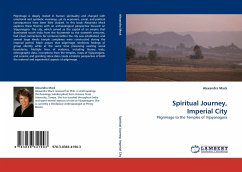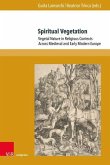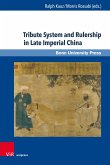Pilgrimage is deeply rooted in human spirituality and charged with emotional and symbolic meanings, yet its economic, social, and political consequences have been little studied. In this book Alexandra Mack explores these themes with an archaeological perspective focused on Vijayanagara. The city, which served as the capital of an empire that dominated south India from the fourteenth to the sixteenth centuries, had ritual connections for centuries before the city was established, and several large Hindu temple complexes were constructed during the imperial period. Mack argues that pilgrimage reinforces feelings of group identity while at the same time preserving existing social boundaries. Multiple lines of evidence, including literary texts, ethnographic data, inscriptions from the temples, maps of Vijayanagara, and ceramic and grinding stone data create a holistic perspective of both the material and experiential aspects of pilgrimage.
Bitte wählen Sie Ihr Anliegen aus.
Rechnungen
Retourenschein anfordern
Bestellstatus
Storno








